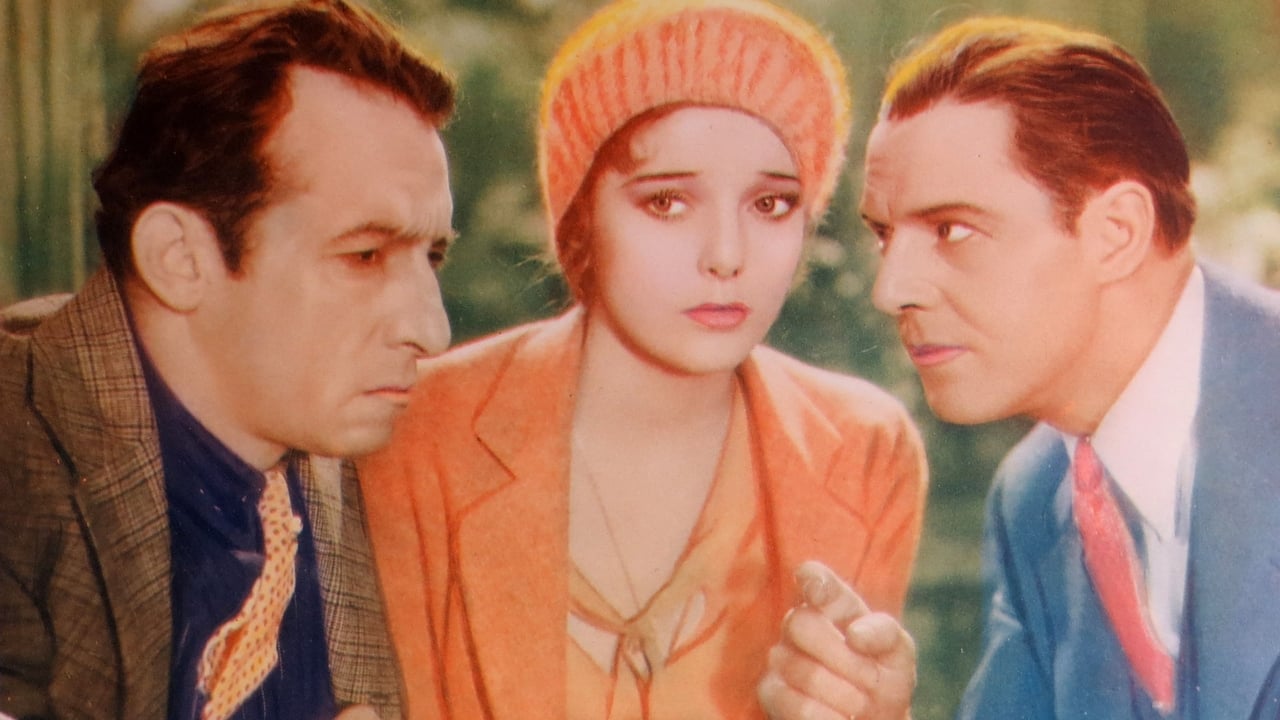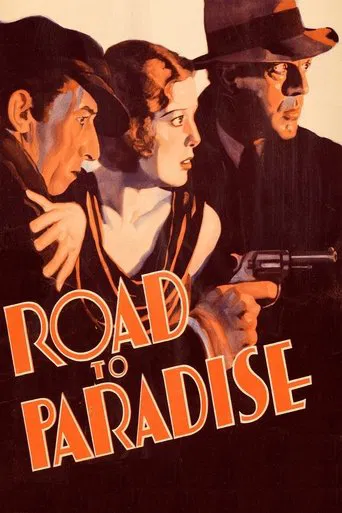

There was a reason Loretta Young's career lasted five decades - it wasn't just her dazzling beauty but had to do with her steely and ruthless determination. By 1930 First National saw her as an extremely decorative leading lady and it was only towards the end of her contract that she was given roles of more depth ("Life Begins", "Heroes for Sale" etc). Just before "Road to Paradise" she met the man who gave her the nickname of "the steel butterfly" - her luckless first husband, Grant Withers. In 1930 he was one of First National's hopeful future stars but his career fizzled out whereas Loretta's went ahead by leaps and bounds which was one of the reasons the marriage failed. This film, based on the Broadway play cornered which opened in 1920 to a respectable 143 performances and starred Madge Kennedy, gave Loretta a chance to play twins but there was not a lot of character differentiation, it was done so much better by Norma Shearer in a similarly plotted film "Lady of the Night" (1925).Beautiful Mary Brennan has been bought up by a couple of small time criminals but has always been guided by an inner core of honesty. One night at a club they come across a slumming party of society types and Jerry "the Gent" is amazed to see that the young heiress, Margaret Waring, is the mirror image of Mary. They make plans, with Mary in tow, to rob the house but a curious cop throws a spanner in the works which sees the "dynamic duo" stranded on the roof and Mary caught in the house. Of course she is taken for Margaret, especially by Margaret's boyfriend George (the ever reliable Jack Mulhall) who finds the "new" Margaret a warmer and more loving person but the real one comes home unexpectedly, is injured in the crossfire and the rest of the film is taken up with determining just who is who!!!This was an interesting take on the "drawing room dramas" that abounded in the very early days of sound. Most of the action took place in the bedroom but it was all very innocent. There was a quick intake of breath when the suspicious sergeant (good old Purnell Pratt) asked her to open the safe as "Margaret" was the only person who knew the combination but Mary with the aid of mental telephony (of course!!) is able to read the numbers from Margaret's mind!! When Margaret pulls through there are no recriminations or calls for the constable (it all had to be wrapped up in 5 minutes) - no! Margaret already knew she had a twin, she could also read minds, had a similar locket and had been searching for Mary for a year!! In fact Mary's consumptive guardian (good old Raymond Hackett) was completely forgotten about. With all the problems of script and story, the only complaint the critics had was Loretta's over clear diction. Considering that the year before, Hollywood was importing stage stars ahead of screen favourites, that nit picking seems weird to me!!
... View More"Road to Paradise" is a 1930 film starring Loretta Young in a dual role.Mary Brennan is a lovely young woman who is in with thieves who raised her. One night at a Chinese restaurant, they all spot her lookalike, Margaret Waring, who is very wealthy. The cons decide to go to her house while she's out, using Mary as her double, and rip her off. Of course, things don't go off without a couple of hitches.This film, even though it's short, seems long as it moves slowly. It's a very early sound movie, and the actors hadn't yet perfected the speech rhythms.Loretta Young is luminously beautiful - here, she's about 17 years old. She does a wonderful job of differentiating between the two women as well. Worth seeing for her, not much else.
... View MoreRoad to Paradise (1930) ** (out of 4) Incredibly far fetched drama about a young woman (Loretta Young) who helps two criminals rob from her look alike. This is certainly a film you'd have to see to believe because the story is so far fetched that you can never take it serious. The screenwriter made the mistake of making this a drama when it probably would have worked better as a screwball comedy. The ending is so out there you can't help but laugh when it's supposed to be dramatic. Young gives a good performance in her duel role but the rest of the cast is pretty dull. Directed by William Beaudine.
... View MorePlease make an effort to view this early talkie drama even if you're not a Loretta Young fan. Here is a fluidly filmed thriller showing an overlooked director at the height of his great powers.Before you glance back at the top of the page and go "William Beaudine? No way!", I know this is the guy whose name appeared in big, cursive letters before the Bowery Boys did their stuff. Yes, this IS the director of "Bela Lugosi Meets A Brooklyn Gorilla", "Green Hornet" TV shows, and finished his career with the unforgettable "Billy The Kid vs. Dracula". I couldn't believe it either, but after watching 1925's "Little Annie Rooney", I was so impressed that I checked his biography. Not only was the same man, his numbers were amazing. Beaudine directed over 250 feature films in 51 years, numerous TV shows (including 70 "Lassie" episodes), and at the time of his death was recognized as Hollywood's oldest active director. I then purchased and viewed Mary Pickford in "Sparrows". The performances he coaxed from these children was only surpassed by the splendid visuals he arranged. And on the strength of this, I chose to view "The Road To Paradise".The film concerns itself with two crooks [one high-line, one common] who have raised an orphan girl. While discussing their next caper, she ARRIVES. A perfectly composed frame fills with a face both radiant and smiling as though she's surprised by a best friend. I've seen Loretta Young all my life, but NEVER have I seen her look so natural and personal. George Barraud and Jack Mulhall as her crook 'parents' comport agreeably and soon draw their ward, Mary (Young) into their latest scheme. While discussing the crime, Mary reveals one of her para-normal talents to be that of mind reading (made possible by her highly empathetic nature). I won't discuss the plot further, but should point out Loretta has a dual role which is handled flawlessly. Don't waste your time trying to catch a split screen or double because you won't. I still framed sequences and can assure you, the director has gotten away with it.The film creates unrelenting tension throughout. Unlike other early talkies, "drawing room" scenes are broken into many different set-ups with the viewers' perspective constantly changing. These shifts are small and you never get lost in the room. Another plus is a very nice rooftop sequence with many different set-ups.Mr. Beaudine filmed this as "Cornered", a 1920 silent. Write me if you know where I can see it.
... View More